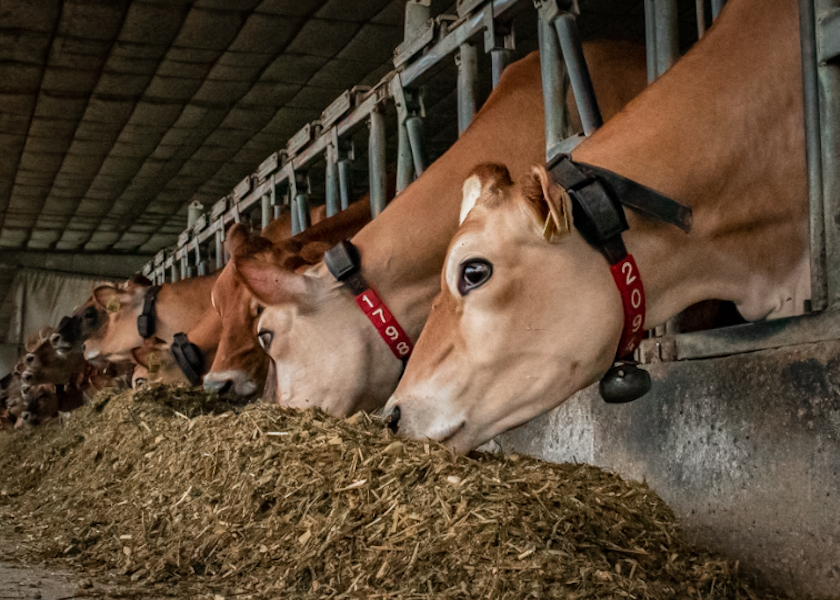Could Feeding Bile Acids Provide a Better Pathway for Transition Success?

Supplementing early lactation dairy cow diets with bile acids could provide a pathway to suppressing fatty liver and ketosis, and ultimately boosting milk production and profitability.
Chinese animal health company, Shandong Longchan Animal Health Product Co., Ltd., has been researching bile acids in dairy rations for several years. Their focus has been on transition cows, whose energy demands often outstrip their ability to consume and digest enough feedstuffs to keep up.
During this state of negative energy balance, cows mobilize body fat, resulting in large quantities of non-esterified fatty acids (NEFA) entering the liver via the bloodstream. NEFA in the liver are processed via one of two pathways:
- Esterification, of which the end result is triglyceride. This triglyceride supply will either be exported back into the bloodstream as part of very low-density lipoprotein (VLDL), or stored as fat in the liver, resulting in fatty liver. The likelihood of fatty liver increases as NEFA loads grow.
- Oxidation, which produces energy if completed fully. Incomplete oxidation creates ketone bodies, resulting in ketosis.
Supplementing with bile acids is being explored because they are thought to relieve the burden on the liver and allow it to function more efficiently. Bile acids support hepatocytes to secrete VLDL by hepatocytes, preventing fat build-up that leads to fatty liver.
Oxidation in the liver also is thought to be supported by the presence of bile acids, allowing for greater energy production and clearance of ketones, which helps prevent ketosis.
A preliminary, 19-cow study by Shandong Longchan showed that bile acid supplementation of recently fresh cows produced notable cure rates for abnormal metabolization of a host of nutrients – protein (75%), fat (80%), carbohydrate (80%), and mineral (71%). Most impressive, the cure rate for liver dysfunction was 100%, and milk production for the treated cows was up about 20% compared to the non-treated controls.
In a more recent study at one of the largest dairy farming groups in China, 215 prepartum Holstein cows were supplemented with bile acids at a rate of 0.15% of dry matter (30g/day), while an equal-sized control group received no supplement.
All cows were fed a common TMR, with the bile acid supplement added to that treatment group’s ration in the morning feeding each day.
Blood samples were collected weekly for two months, following all cows through calving and lactation initiation. The researchers found that the bile-acid-supplemented group produced an average of more than 3.5 kg (7.7 lb.) of milk per day during the study period compared to the non-supplemented control animals.
The researchers believe the addition of bile acids to the transition ration supported liver function in the treated cows, allowing for more efficient and complete processing of NEFA, and showing promise for improved milk production and profitability of transition cows.
For more on nutrition, read:
- Increased Feed Efficiency Leads to a Decreased Carbon Footprint
- HBS Avoidance Strategies
- 5 Steps to Prevent Inflammation in Transition Cows







